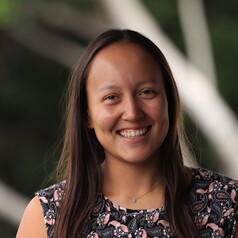
Kiara Too
PhD candidate, School of Human Movement and Nutrition Sciences, The University of Queensland
Kiara is an accredited practicing dietitian currently studying a PhD in nutrition and dietetics at The University of Queensland. Kiara also has a background working in childcare and as a tennis coach, which has facilitated a passion for improving childhood and family health through optimising dietary behaviours.
Less ![]()
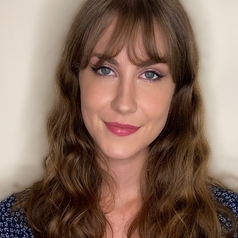
Kiera Louise Adams
I am a DPhil candidate at the University of Oxford, researching the role of interoception in the overlap between autism and mental health conditions such as eating disorders and anxiety. In particular, my research explores interoception as a causal mechanism underlying the associations between various developmental conditions and mental disorders, including eating disorders, anxiety, autism and alexithymia. My research is funded by a Clarendon Scholarship and a Medical Sciences Division Studentship.
Less ![]()
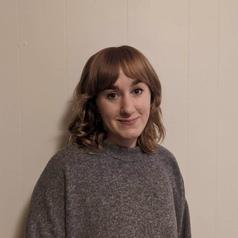
Kiera O'Neil
Manager, Developmental Psychobiology Research Centre, Mount Saint Vincent University
Dr. Kiera O'Neil holds a Ph.D. in Psychology & Neuroscience from Dalhousie University. She has expertise in cognitive neuroscience, with a focus on how experience shapes the neural systems underlying language and memory. Her recent work has focused on how early blindness impacts the language and working memory networks in the brain, the psychosocial factors that affect remote-work productivity during the COVID-19 pandemic, and the behavioural and brain correlates of mind-wandering during technology use. She currently works in the Developmental Psychobiology Research Centre at Mount Saint Vincent University, which investigates how early life experiences influence biological, psychological, and social development, particularly the impact of early experiences on the brain and behaviour in both parents and children, beginning during the prenatal period and spanning to later childhood.
Less ![]()
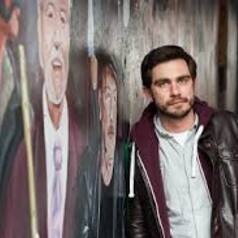
Kieran Connell
Senior Lecturer in Contemporary British History, Queen's University Belfast
Kieran Connell teaches history at Queen's University Belfast. His first book, Black Handsworth: Race in 1980s Britain was published by the University of California Press in 2019 and shortlisted for the Whitfield Prize. His next book, Multicultural Britain: A People's History will be published in 2024.
Less ![]()
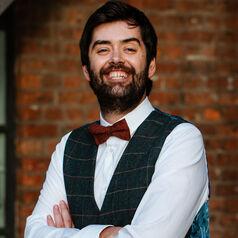
Kieran Foster
Assistant Professor in Film and Screen Studies, University of Nottingham
Dr Kieran Foster is an Assistant Professor in Film and Screen Studies at the University of Nottingham, with his research speciality being the horror genre and unmade films. His monograph, Hammer Goes to Hell, published by Edinburgh University Press in 2023, charts the history of Hammer’s unmade films.
Less ![]()
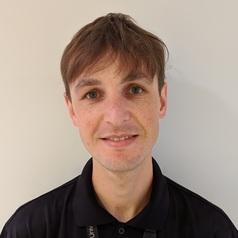
Kieran Hegarty
Research Fellow (Automated Decision-Making Systems), RMIT University
Kieran Hegarty is a Research Fellow at the RMIT University node of the ARC Centre of Excellence for Automated Decision-Making & Society (ADM+S).
Kieran’s research explores the relationship between social infrastructure (particularly libraries) and digital technologies. His PhD research examines how online material is incorporated into major public library collections, and the effects that a changing information environment has on the public’s right to access and contribute to the shared cultural record.
Kieran is a member of the Australian Digital Inclusion Index research team and contributes to a range of ADM+S projects focused on digital inclusion and participation. He was also an inaugural Digital Humanism Junior Visiting Fellow at the Institute for Human Sciences in Vienna and is a PhD member of two of Australia’s leading interdisciplinary research centres (the Centre for Urban Research and the Digital Ethnography Research Centre at RMIT).
Less ![]()
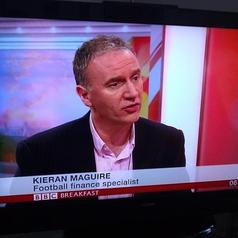
Kieran Maguire
Senior Teacher in Accountancy and member of Football Industries Group, University of Liverpool
I'm a chartered accountant who has been involved in financial education since 1989. I teach a number of courses at Liverpool on financial reporting and management accounting.
I am a member of the Football Industries Group, which is a team of football industry experts. We run the original and still the only Football Industries MBA (FIMBA), in partnership with FA Learning, for those in pursuit of a career in the business of football.
I love mixing technology with teaching, have won the UK's best finance lecturer award, as well as a number of local ones from when I taught in higher education in Manchester.
Love my football team, my cricket team, my dog and my wife (not necessarily in that order). I have had fun and games appearing in the media on BBC national and local TV and Radio, Granada, The Times, FT, Independent, Guardian, Manchester Evening News and others talking about general finance and business issues, specialising in sport finance, the budget. My aim is to take the fear out of numbers, if you can add 2+2 that's all that is required, the rest is just detail.
Less ![]()
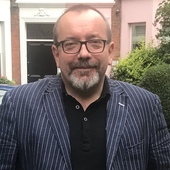
Kieran McEvoy
Senator George J. Mitchell Chair of Peace, Security and Justice, Professor of Law and Transitional Justice, Queen's University Belfast
Less ![]()
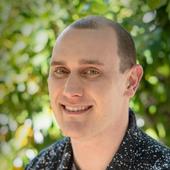
Kieran McGuinness1
Postdoctoral Fellow, News & Media Research Centre, University of Canberra
Less ![]()
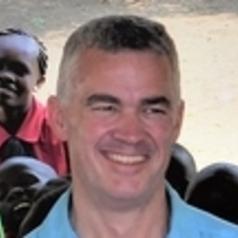
Kieran McNulty
Professor of Anthropology, University of Minnesota
Kieran McNulty is a professor of anthropology at the University of Minnesota, where he was awarded the McKnight Land-Grant Fellowship 2008, named Scholar of the College in 2017, and has received multiple teaching awards.
His principal interests are in the evolution of apes and humans, pursued simultaneously through laboratory research on the morphogenesis of skeletal anatomy and through paleontological fieldwork in eastern Africa. Kieran conceived of and directs the NSF-funded REACHE project, a collaborative network that coordinates field research at all of the Early Miocene fossil ape sites in eastern Africa, working in close association with the National Museum of Kenya and Uganda National Museum. His research has been funded by the National Institutes of Health, Wenner-Gren Foundation, and Leakey Foundation. He also serves as (senior) associate editor for the flagship publication American Journal of Biological Anthropology.
Less ![]()
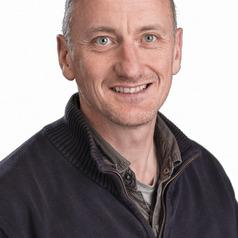
Kieran Mulchrone
Senior Lecturer, School of Mathematical Sciences, University College Cork
I am a senior lecturer in the school of mathematical sciences, focused on fluid mechanics in geology.
Research interests include: Mathematical modelling, numerical methods, machine-learning, fluid Mechanics (low Reynolds number flow) in Geological problems, Statistical analysis of finite strain in rock mechanics, software development and object orientated technologies.
Mathematical Modelling of Patterns in Geology and the Natural World: A fundamental hypothesis of my research is that attaining a greater understanding of the physical behaviour of rocks during deformation will lead to methods which allow estimation of the amount and type of deformation from the finite, observable pattern of inclusions exhibited in natural examples. Thus, the basic research question I address is how do rocks deform when subjected to stress?
Less ![]()
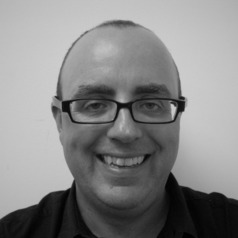
Kieran Ruane
Lecturer in Civil and Structural Engineering, Munster Technological University
Kieran Ruane is a Chartered Civil and Structural Engineer and a lecturer in the Department of Civil, Structural and Environmental Engineering at MTU. Kieran is a former director of RPS where he was Head of Bridges and he has 30 years’ experience in the design and delivery of civil engineering works of all scales. Kieran has an extensive industry and academic network in the engineering sector in Ireland. He was Chair of the Institution of Structural Engineers, Republic of Ireland Group in 2018 and 2019 and he is currently President of the Civil Engineering Research Association of Ireland.
Kieran has active research projects in the area of repurposing composite materials including a recent award from SEAI. He designed and oversaw the fabrication and construction of the BladeBridge for Cork County Council.
Less ![]()
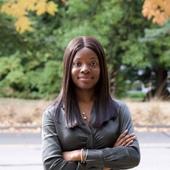
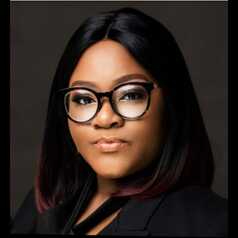
Kikelomo Kila
Lecturer in Law, University of Huddersfield
Kikelomo Kila is a researcher in climate change, renewable energy and corporate regulation law and policy in developing countries. Her extensive research in climate change law earned her an endorsement as an Exceptional Talent in Legal Research by the British Academy in March 2020 and she has a recent book chapter publication with Cambridge University Press.
She obtained a PhD in climate change law and policy from the University of Exeter under full doctoral sponsorship by the Petroleum Technology Development Fund. She obtained her LLB from the University of Buckingham in 2009 and LLM in oil and gas law from Robert Gordon University, Aberdeen in 2012.
She is a barrister and solicitor of the Supreme Court of Nigeria and a senior research consultant (policy, consultation and legislative drafting) to the Constitution Review Committee of the Nigerian Senate. Kikelomo specialises in teaching employment law, torts law and equity and trusts law and has practical experience in employment and torts law matters. Kike’s teaching expertise also covers a broad range of foundational law modules including company law, EU law and competition law.
Less ![]()
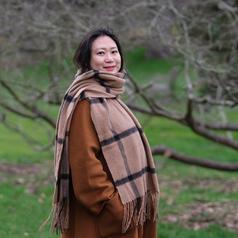
Kiki Tianqi Yu
Senior Lecturer in Film, Queen Mary University of London
Kiki Tianqi Yu is Senior Lecturer in Film at Queen Mary University of London. As a theorist, filmmaker and curator, she is committed to advancing dewesternised film theories and research-led practice. Her current works include theorising cinema through Daoism; documentary, essayistic nonfiction and artist moving images from the Global south and east; women’s cinema and localised feminism in East Asia. Her books include ‘My’ Self on Camera (EUP 2019), China’s iGeneration (Bloomsbury, 2014). Kiki’s award-winning feature documentaries include China’s van Goghs (2016), and The Two Lives of Li Ermao (2019), shown at over 50 international film festivals and institutions. She curated ‘Polyphonic China’ (London 2009) and ‘Memory Talks” (Shanghai 2017).
Less ![]()
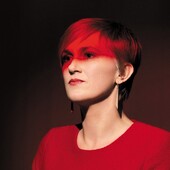
Kiley Seymour
Associate Professor of Neuroscience and Behaviour, University of Technology Sydney
Less ![]()
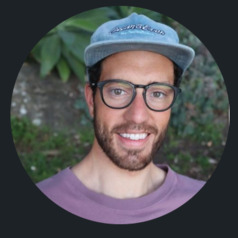
Kilian Vos
Research Associate, UNSW Sydney
I am a researcher in Coastal Science and Remote Sensing. My research uses big-data satellite remote sensing to monitor sandy coastlines and study how they respond to changes in waves and water levels. I am especially interested in coastal changes driven climate variability like ENSO.
Less ![]()
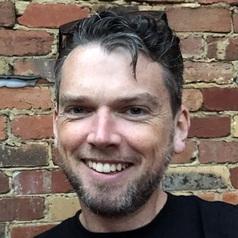
Killian Quigley
Research Fellow in Literary Studies, Australian Catholic University
Killian Quigley completed his PhD in the Department of English at Vanderbilt University, where he was awarded the Robert Manson Myers and John M. Aden Awards, as well as the Drake Scholarship. Having defended his dissertation, he was appointed inaugural postdoctoral fellow at the Sydney Environment Institute, University of Sydney. In 2021, he became a Research Fellow at the Australian Catholic University's Institute for the Humanities and Social Sciences. In 2023, Killian was an invited visiting fellow at the Institute of the Humanities and Global Cultures, University of Virginia.
Less ![]()
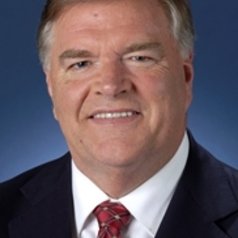
Kim Beazley
Mr Beazley was elected to the Federal Parliament in 1980 and represented the electorates of Swan (1980-96) and Brand (1996-2007).
Kim Beazley was a Minister in the Hawke and Keating Labor Governments (1983-96) holding, at various times, the portfolios of Defence, Finance, Transport and Communications, Employment Education and Training, Aviation, and Special Minister of State. He was Deputy Prime Minister (1995-96) and Leader of the Australian Labor Party and Leader of the Opposition (1996-01 and 2005-06). Mr Beazley served on parliamentary committees, including the Joint Intelligence Committee and the Joint Foreign Affairs, Defence and Trade Committee.
After his retirement from politics in 2007, Mr Beazley was appointed Winthrop Professor in the Department of Politics and International Relations at the University of Western Australia. In July 2008 he was appointed Chancellor of the Australian National University, a position he held until December 2009. Mr Beazley took up an appointment as Ambassador to the United States of America in February 2010. He served as Ambassador until January 2016.
Upon returning to Australia he has been appointed as President of the Australian Institute for International Affairs, Distinguished Fellow at the Australian Strategic Policy Institute, Senior Fellow at the Perth USAsia Centre and Board Member of the Australian American Leadership Dialogue.
In 2009, Mr Beazley was awarded the Companion of the Order of Australia for service to the Parliament of Australia through contributions to the development of government policies in relation to defence and international relations, and as an advocate for Indigenous people, and to the community.
Less ![]()
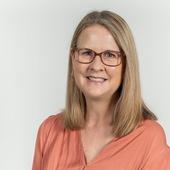
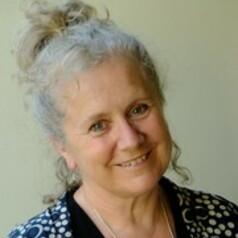
Kim Bulkeley
Research Fellow, Senior Lecturer, Faculty of Medicine & Health, University of Sydney
Dr Kim Bulkeley is an occupational therapist with over 25 years experience in the community disability sector in front line, management, policy and research roles.
Kim has a continuing position with the Occupational Therapy Discipline at the Faculty of Health Sciences in a teaching and research role. Kim is passionate about her research work with remote communities in north western NSW increasing access to allied health services through action research methods.
Kim completed her PhD in 2017, investigating a family centred intervention for young children with autism and has published this work in peer reviewed journals and a book chapter.
Kim is committed to developing and supporting future generations of occupational therapists through authentic learning and involvement of students in professional networks and activities beyond their units of study.
Less ![]()
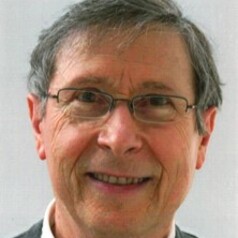
Kim Colyvas
Research Assistant, University of Newcastle
Currently working as a casual Senior Research Assistant at the University of Newcastle providing statistical help to researchers.
Prior to that worked as a part time statistical consultant and consulting unit manager.
Statistical consultant 2003 to 2006 then consulting unit manager 2007 to 2020.
Lecturing and tutoring statistics to first year business students and 2nd year chemical engineering students
2000 - 2004
Analytical Chemist & Statistical Consultant
Analytical chemist about 22 years then moved into consulting in total quality management and statistical consulting for the next 9 years.
1968 - 1999
Less ![]()
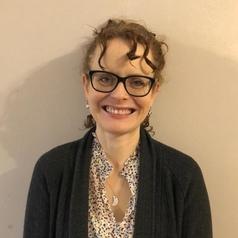
Kim Davis
General paediatrician and paediatric infectious diseases specialist, Murdoch Children's Research Institute
Dr Kim Davis
Paediatric Infectious Disease & General Paediatrics
MBBS BMedSc FRACP
Kim is a PhD student at Murdoch Children's Research Institute and a paediatric infectious diseases specialist/general paediatrician at Monash Children's Hospital. Kim obtained her medical degree from Melbourne University in 2007 and has trained in Victoria, Queensland, the Northern Territory, Timor-Leste and the UK. She obtained her RACP Fellowship in 2020 and has a Masters of Public Health from the London School of Hygiene and Tropical Medicine. Kim's interests include infectious diseases, travel medicine and refugee health.
Less ![]()
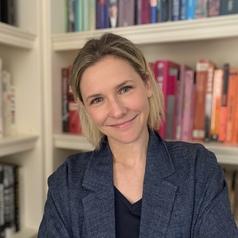
Kim de Laat
Sociologist and Assistant Professor at the Stratford School of Interaction Design and Business, University of Waterloo
I am a sociologist of work and culture. Currently I examine the unintended consequences of policies aimed at reducing inequality. This includes studying the relationship between flexible work policy and gender inequality, and diversity and inclusion efforts in the music industry. Throughout my career to date, I have always endeavoured to amplify the policy implications surfaced in my work. This has resulted in op-eds in the Globe & Mail, Toronto Star, Policy Options, and policy reports with/for: Vanier Institute of the Family, National Research Council, Women Entrepreneurship Knowledge Hub, and the Canadian Live Music Association, among others.
Less ![]()
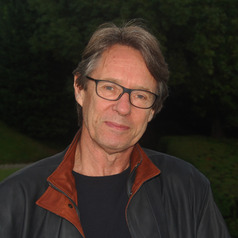
Kim Dovey
Professor of Architecture and Urban Design, University of Melbourne
Kim has taught architecture and urban design at the University of Melbourne for over 20 years during which time he served as Associate Dean (Research and Resources), Head of Architecture and Head of Urban Design.
Kim’s research interests include theories of place identity, public space, informal settlements, creative clusters and transit-oriented development - the best intro is in the books 'Framing Places' and 'Becoming Places'.
In Kim’s teaching - whether lecture, studio, workshop or seminar - he seeks to open up students to the potentials of creative and critical thinking; to introduce them to the intellectual tools necessary for critical practice.
Less ![]()
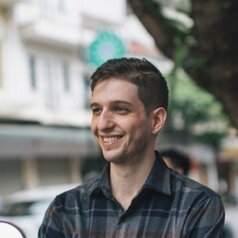
Kim Encel
Sessional Academic and UNESCO Consultant, Deakin University
Hi, I'm Kim.
I've been teaching, facilitating, researching, and managing projects globally in sport, health, and youth development for almost 10 years. And, I love it!
If you really have to know, I have a PhD on the Australian Football League Women's competition. Since I finished it, I've been working with UNESCO in sport and youth development in Southeast Asia while continuing to teach and research at Deakin and Swinburne University.
If there's something you think we should work on together, let's chat! I'm always open to new and exciting ideas.
Less ![]()
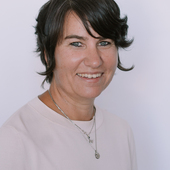
Kim Gurney
Senior Researcher, Centre for Humanities Research — Platform: SA-UK Bilateral Digital Humanities Chair in Culture & Technics, University of the Western Cape
Less ![]()
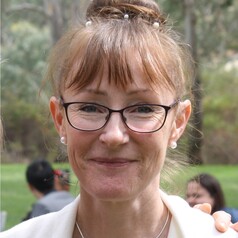
Kim Hemsley
Head, Childhood Dementia Research Group, Flinders Health and Medical Research Institute, College of Medicine and Public Health, Flinders University
Since establishing the Childhood Dementia Research Group in 2002, Kim has dedicated her research career to the study of, and development of treatments for childhood dementia. Kim presently leads and coordinates a multi-disciplinary team and a comprehensive, innovative translational research program that is seeking to develop tools for predicting the rate of symptom onset and disease progression in the childhood dementia Sanfilippo syndrome, evaluate novel treatments, and provide blood-based biomarkers for monitoring therapeutic efficacy.
Less ![]()
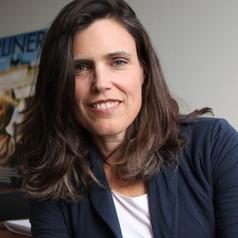
Kim Nelson
Associate Professor. Cinema Arts, School of Creative Arts, University of Windsor
Kim Nelson is the Director of the Humanities Research Group, and an Associate Professor of Cinema Arts in the School of Creative Arts, at the University of Windsor in Canada. She holds a PhD in Media Studies from the University of Babelsberg in Germany. Her work has screened at international film festivals and on university campuses across Canada, the US, and Europe and has been broadcast nationally on the Canadian Broadcast Corporation (CBC), as well as online with KCET in the US. She has received the University of Windsor’s Award for Excellence in Research, Scholarship, and Creative Activity, in the Emerging category in 2014, and Mid-Career, in 2020. She has held fellowships with the Cinema Research Institute at New York University, 2015-2016, the Humanities Research Group, at the University of Windsor, 2013-2014, and the DAAD (Deutscher Akademischer Austauschdienst, awarded by the German federal government) in Potsdam 2012-13. Her work has been supported by the Windsor Endowment of the Arts, the Ontario Arts Council, and she is the principal investigator on three current research projects funded by the Social Sciences and Humanities Research Council of Canada. In addition, she has funding from the Canadian Ministry of Heritage under their Initiative for Digital Citizen Research in support of Moving Histories: an International Symposium on Screened History scheduled for November 2022. Her creative focus is on documentary, and innovative film forms, such as expanded cinema and live documentary. She has performed live documentaries in the US and Canada.
Less ![]()
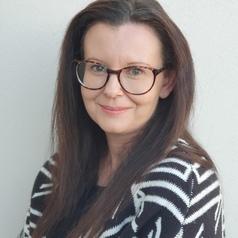
Kim Osman
Senior research associate, Queensland University of Technology
Kim is a Senior Research Associate with the Digital Media Research Centre at the Queensland University of Technology. She explores the complex relationship between digital and social inclusion focusing on the role of social infrastructure and informal education in improving digital literacies and wellbeing. Kim is currently researching how low-income families access and use technology for education and parenting as part of their everyday lives. Kim’s background is in communications and policy for the voluntary sector in the UK and Australia.
Less ![]()
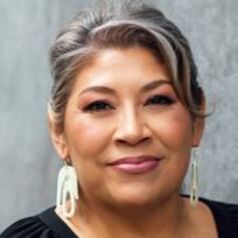
Kim TallBear
Professor of Native Studies, University of Alberta
Kim TallBear, author of Native American DNA: Tribal Belonging and the False Promise of Genetic Science (2013), is Professor in the Faculty of Native Studies, University of Alberta. She is also Canada Research Chair in Indigenous Peoples, Technoscience, and Society. In addition to studying genome science disruptions to Indigenous self-definitions and the colonial ethics historically of genomic and other physical sciences, Dr. TallBear studies colonial disruptions to Indigenous sexual relations. She also studies and promotes Indigenous scientific and cultural challenges to settler-colonial study and objectification of Indigenous populations and our social and cultural practices.
You can follow her research group related to Indigenous science, technology and society (Indigenous STS) at https://indigenoussts.com/ that she co-founded with her Faculty of Native Studies colleague, Assistant Professor, Jessica Kolopenuk. TallBear has published research, policy, review, and opinion articles on a variety of issues related to science, technology, environment, sexualities, and Indigenous peoples in academic and popular journals including Wicazo Sa Review, Social Studies of Science; Science, Technology, & Human Values, Journal of Law Medicine & Ethics, Journal of Research Practice, Indian Country Today, Buzzfeed, and High Country News as well as in edited volumes published by University of Chicago Press and Routledge .
Dr. TallBear co-founded and co-produces the sexy storytelling and cabaret show, Tipi Confessions, with McMaster University professor Tracy Bear (Nehiyaw’iskwew from Montreal Lake Cree Nation), and with Native Studies PhD student Kirsten Lindquist (Cree-Métis). Tipi Confessions is an offshoot of the popular Austin, Texas show, BedPost Confessions. After seeing the success of the Tipi Confessions show in Edmonton and across Canada, TallBear, Bear, and Lindquist founded a research-creation group, Re-Lab: Restory, Research, and Reclaim, in which faculty, students, and community members produce creation informed research and research informed creative works and performance.
Kim TallBear is a citizen of the Sisseton-Wahpeton Oyate in present-day South Dakota and is also descended from the Cheyenne & Arapaho Tribes of Oklahoma, where she is also eligible for citizenship. TallBear "immigrated" across the settler-imposed border between the "USA" and "Canada" in 2015. In reality, she only moved across vast territories inhabited by her Peoples and ancestors for millennia. In addition to the aforementioned Indigenous nations, TallBear has ancestry among Cree, Métis, and Anishinaabe Peoples. But since ancestry alone is not a claim, she would never assert that she is more than a distant relation to individuals among those Peoples. She is grateful to be living now in amiskwaciy-wâskahikan (Edmonton), Treaty 6 territory, a traditional gathering place for diverse Indigenous peoples including Cree, Blackfoot, Métis, Nakota Sioux, Iroquois, Dene, Ojibway/ Saulteaux/Anishinaabe, Inuit, and many others.
Dr. TallBear tweets @KimTallBear. You can read her regular pre-academic essays/posts on her Substack newsletter, Unsettle: Indigenous affairs, cultural politics & (de)colonization. Dr. TallBear is also a regular panelist on the weekly podcast, Media Indigena, which is hosted by Rick Harp.
Less ![]()
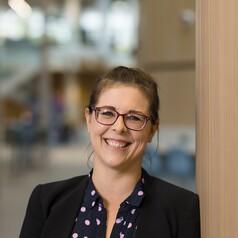
Kim Watts
Senior Lecturer in Marketing (Strategic Marketing and Business-to-Business Marketing), University of Bath
I teach Contemporary Marketing Theory and Application to full-time and Executive MBA students, Business-to-Business marketing to final-year undergraduates, and Strategic Marketing at the post-graduate level.
My teaching researches and embeds the use of Generative AI and Large Language models in teaching, learning, assessment, and feedback. As well as developing experiential learning through authentic assessment practices.
My research interests are Customer inspiration, technology use and shopper behaviour.
Less ![]()
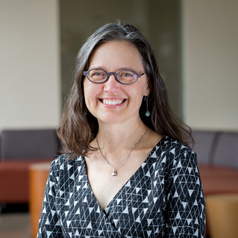
Kimber Wilkerson
Professor of Special Education, University of Wisconsin-Madison
Kimber Wilkerson is a professor of Special Education. She is the Principal Investigator (PI) of a research project funded by the U.S. Department of Education's Institute of Education Sciences to develop and examine the effectiveness of virtual coaching and an online community of practice for rural special educators. The goal of this research is to reduce burnout, increase teachers' desire to stay in the profession, and to increase their positive impact on learning for students with disabilities. Dr. Wilkerson is also the Project Director of a master's level special education teacher residency program, funded by a Teacher Quality Partnership grant, in collaboration with Milwaukee Public Schools. She formerly directed a similar special education teacher residency program serving rural and other high-need Wisconsin school districts
Dr. Wilkerson is also co-PI on two federally-funded training grants to prepare master’s level special educators and one doctoral leadership grant. She has broad expertise in the preparation of teachers to work with students with disabilities and providing instruction to students with disabilities to improve their long-term academic and social/behavioral outcomes.
Less ![]()
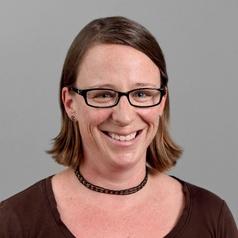
Kimberlee D'Ardenne
Assistant Research Professor in Psychology, Arizona State University
I earned my doctorate in chemistry and neuroscience from Princeton University and completed postdoctoral work at Baylor College of Medicine and Virginia Tech. My research has focused on developing magnetic resonance imaging methods to study brainstem monoamine systems, such as dopamine and norepinephrine, in people during cognition and decision making. I love writing and am passionate about communicating science to the public.
Less ![]()
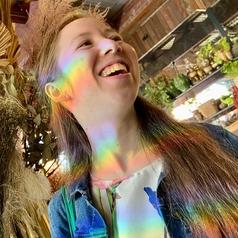
Kimberley Allison
Senior Research Officer, Western Sydney University
Dr Allison is a cross-disciplinary researcher who has worked in psychology, healthcare and social computing research. They hold a PhD from Macquarie University, where their dissertation examined how antisocial online behaviours are rationalised and normalised within toxic and subversive online communities. More broadly, their research examines experiences of populations marginalised and underserved by dominant systems: young people impacted by cancer; LGBTQI+ inclusion in healthcare and the workplace; and online communities for marginalised and subversive groups.
Less ![]()
- Market Data





















